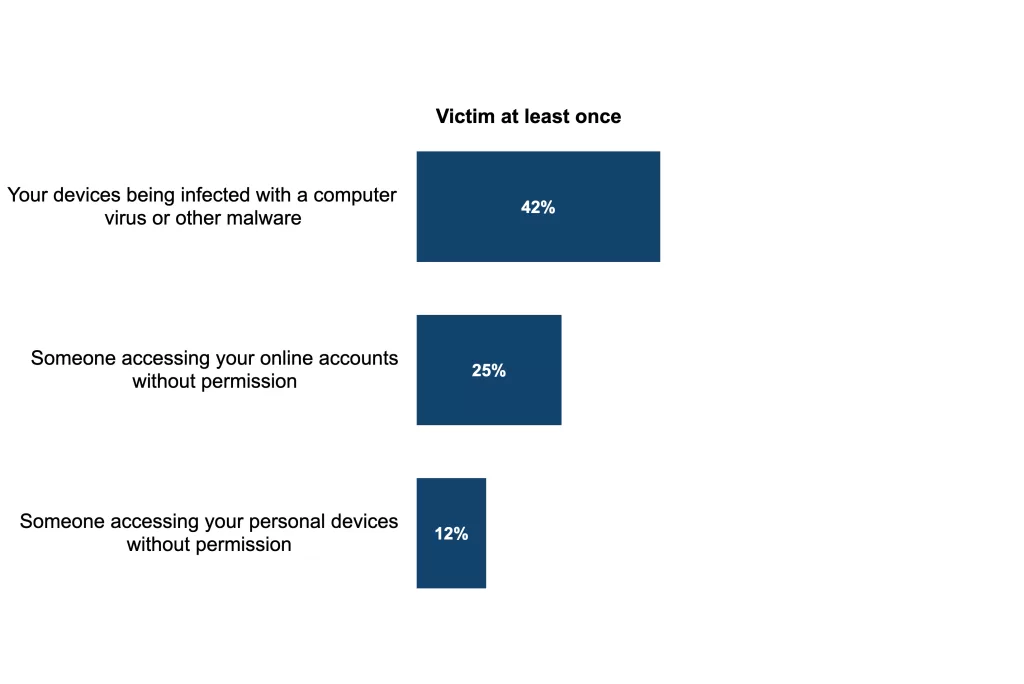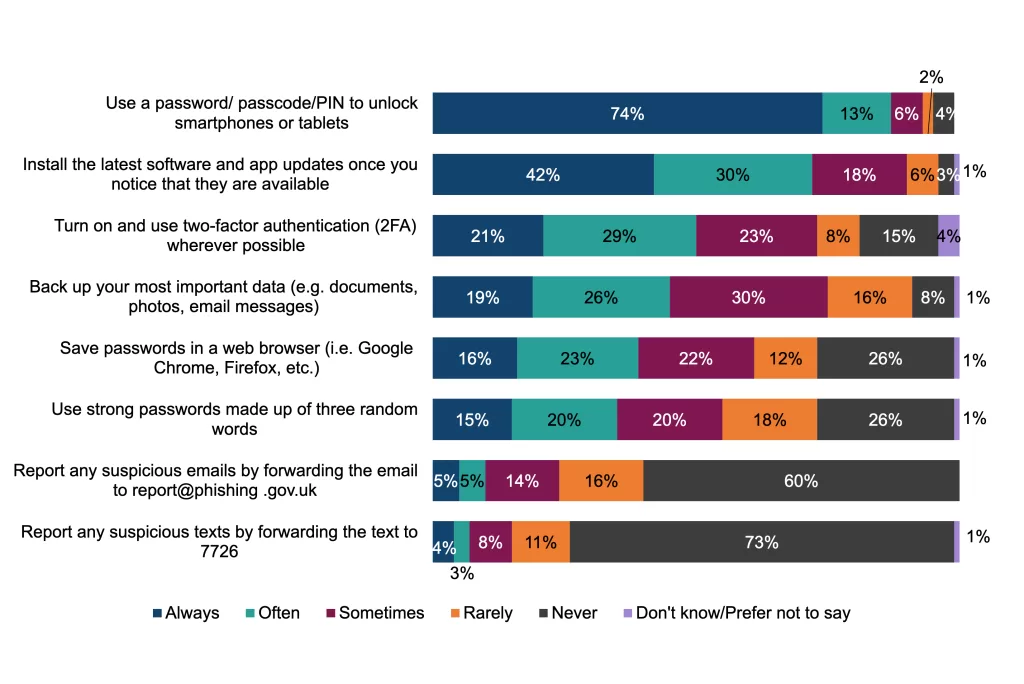A recent government-commissioned survey reveals significant public concerns about UK cybercrime and fraud (England, Scotland, and Wales). Conducted by Ipsos UK for the Home Office, the research offers insights into public perceptions, victimization experiences, and cyber security behaviors.
It found that over half of participants perceive moderate personal risks, with 42% feeling vulnerable to retail fraud, such as counterfeit purchases or undelivered goods. Similarly, cyber crime awareness is high, with 50% worried about malware infections and 48% fearing unauthorized access to online accounts.
Victimization and Reporting Trends
The findings reveal widespread victimization, with 42% experiencing malware attacks and 35% reporting fraud involving counterfeit goods or missing purchases. Alarmingly, under 10% reported incidents to the police or Action Fraud, with banks being the most common reporting avenue (39%).
Public confidence in government and law enforcement response remains low. Only 43% trust the government to tackle cybercrime, and just 32% feel confident in the police’s ability to respond.
UK Cybercrime Victimisation
Have you ever been a victim of the following?

UK Cybercrime Security and Protective Behaviors
While 80% prioritize cybersecurity, practical measures remain inconsistent. Most respondents use passwords or PINs, yet only 49% regularly enable two-factor authentication. Reporting suspicious activities to government channels like Action Fraud or phishing hotlines is minimal, reflecting low awareness.
How regularly, if at all, do you do the following?

The report emphasizes the need for enhanced public education, better-reporting mechanisms, and proactive governmental strategies to improve confidence and reduce cyber threats. By addressing these gaps, authorities can better protect citizens from evolving digital dangers.
The survey, involving 2,178 respondents aged 16 to 75, explored attitudes towards online fraud and cybercrime.
Other News: The Role of Human Error in Cybersecurity Failures and How to Mitigate It(Opens in a new browser tab).